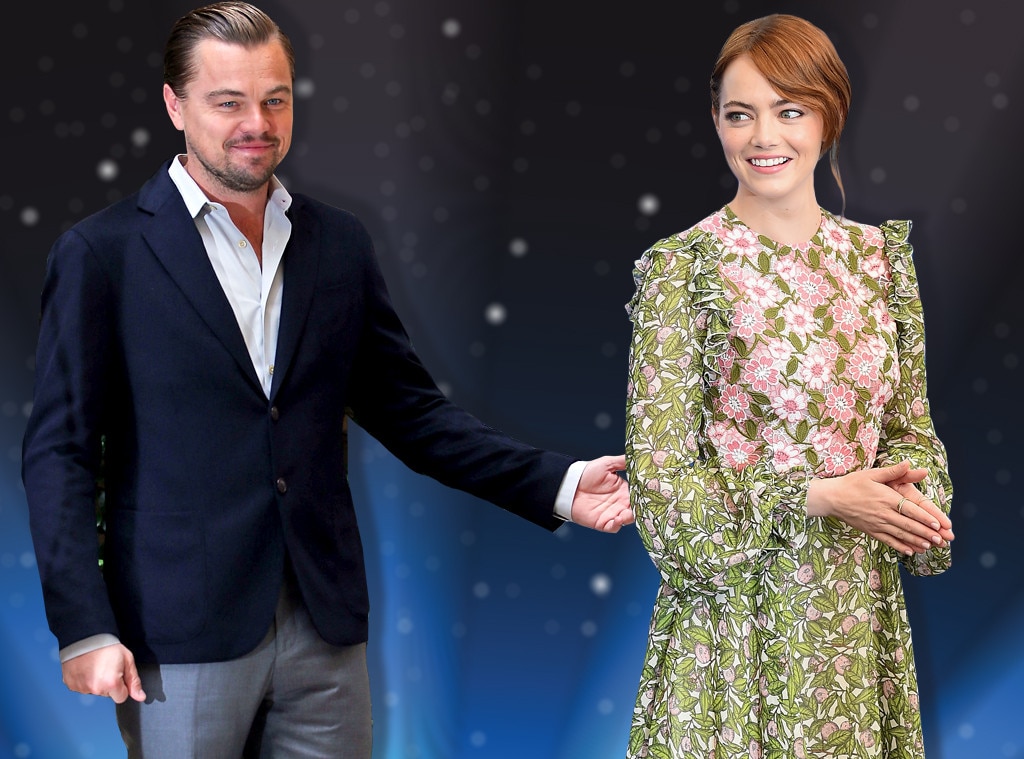
And yes, when it comes to trying to nab an Oscar, campaign is the best adjective to describe the process. It involves scheming and brainstorming and gobs and gobs of money. There are no ulterior motives or backroom deals and, really, no secrets—because the end goal is completely transparent. Movie studios (and the actors they employ) are in it to win it, and they'll do everything that's legal, and within their power, to do so.
But just because the process is lacking in smoke and mirrors doesn't mean it's any less interesting or mind-boggling. As the 2017 show approaches, there are, quite literally, hundreds of people who have spent the better part of the last six months (and given up the better part of their sanity) to come out on top come Sunday at 9 p.m.
The Academy now places restrictions on everything from hosted screenings, to gifts, to even whether you can or can't serve free food and booze to guests at parties. (The short answer is: You really can't after the nominations have been announced.) And, to make a very long document full of legalese short, studios and production companies are prohibited from reaching out or cozy-ing up to voters directly. This might seem a little heavy-handed, but it's all in the name of fairness and making sure that indie movies with low budgets don't get out-shined by films from large studios with even larger budgets.
Now, does it really work that way? No. That's because of a little something we like to call a loophole. There's nothing at all wrong with campaigning to the general public, and if the voting members take notice, then so be it. Was Leonardo DiCaprio's pre-awards meeting with the Pope last year technically directed towards the Academy? No. Did many of its members see the news and subsequently join in the rest of the Universe in eliciting a collective Aww? Probably, definitely, yes.
Once a plan is finalized, it's time for the nitty gritty. The most important part of convincing the Academy to vote for certain actors or movies is the actual meeting of the Academy members. Face time. Wining and dining. Buttering up. Whatever you want to call it. Campaigning is largely an old-school process (think: More analog, less digital—the chief example being the For Your Consideration ads studios run, which can cost up to $25,000 for a billboard and $75,000 for a full page in Variety), which shouldn't be surprising given the insights into the academy's demographics that came out during last year's #OscarsSoWhite controversy.
Plus, the voters get just as star struck as the rest of us. They're dying to meet the stars, whether it's shaking their hands, chatting them up or even asking for selfies—basically, they're doing it all for the 'Gram. Studios get out to get this quality time in through all kinds of events, like screenings that are followed by Q&A's with the movie's talent, the annual Oscar Nominees luncheon, sending their celebs to less exclusive film festivals (like the annual Santa Barbara Film Festival, which affords attendees more intimate moments such as this year's honorees, Ryan Gosling and Emma Stone), or straight-up throwing a lavish party, the way that Jeff Bezos, president of Amazon Studios and backer of Manchester by the Sea, did with his recent holiday party, that saw Hollywood bigwigs enjoying crab and high-end scotch under a tent in his backyard.
Vogue is a natural place to feature the Best Actress front runners, with Emma Stone fronting the November issue and Ruth Negga taking January, but in addition, Natalie Portmancovered Marie Claire, Michelle Williamscovered Elle and the whole lot of competitors shared Vanity Fair. Special shout outs should also be given to the men, like Gosling's GQ and Mahershala Ali's The Hollywood Reporter.
Beyond the constant schmoozing, this schedule requires a lot of transcontinental and even international travel. The stars fly all over the world to tend to campaign duties, typically during a period of time in which they're filming their next project. During Larson's pink eye scare she happened to be filming Kong: Skull Island, and jetted to Los Angeles from Hawaii, Australia and Vietnam, often going straight from the plane to networking.
As for 2017's campaigns, Emma Stone has perhaps been pushed by her studio harder than anybody. She was on Rolling Stone, Vanity Fair, W and the aforementioned Vogue. She played the whisper game on Jimmy Fallon, she twerked on Ellen, she told embarrassing stories on Graham Norton. She posed on countless red carpets, in countless gorgeous frocks. (Actually, that part doesn't sound half bad.)
"Apologies in advance for this simple letter," Reynolds wrote to voters. "I was informed by 20th Century Fox that I'm not allowed to present you with freshly pitted Greek olives, locally purchased deli meats and low-grade Canadian elk jerky. I can offer you complimentary backstage passes to my heart, along with my sincerest thanks for supporting our Deadpool film this year."
And that, ladies and gentleman, is how it's done.
No comments:
Post a Comment